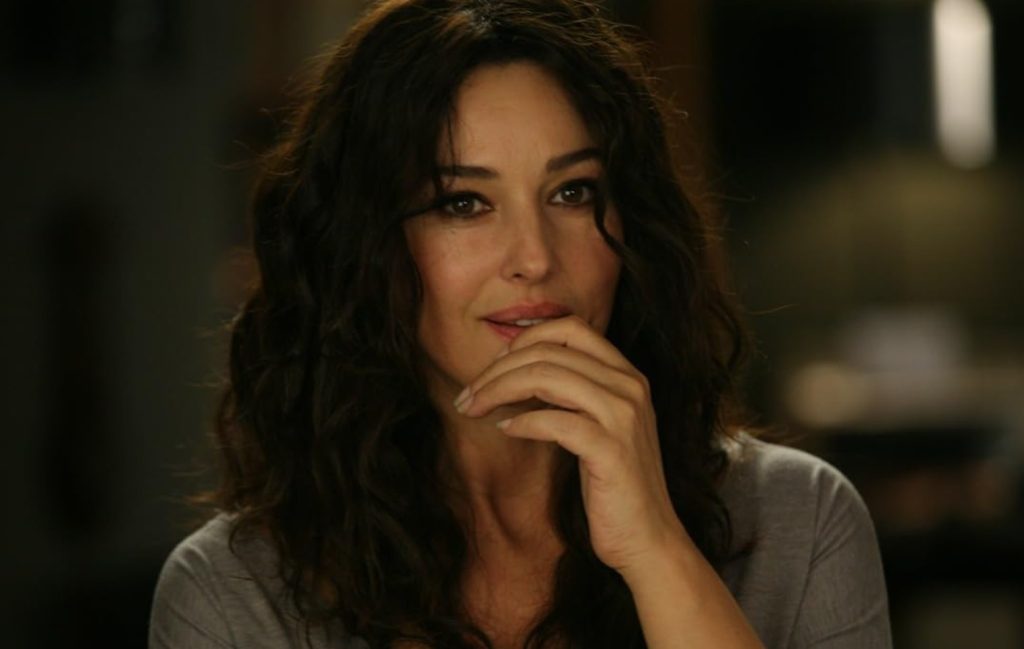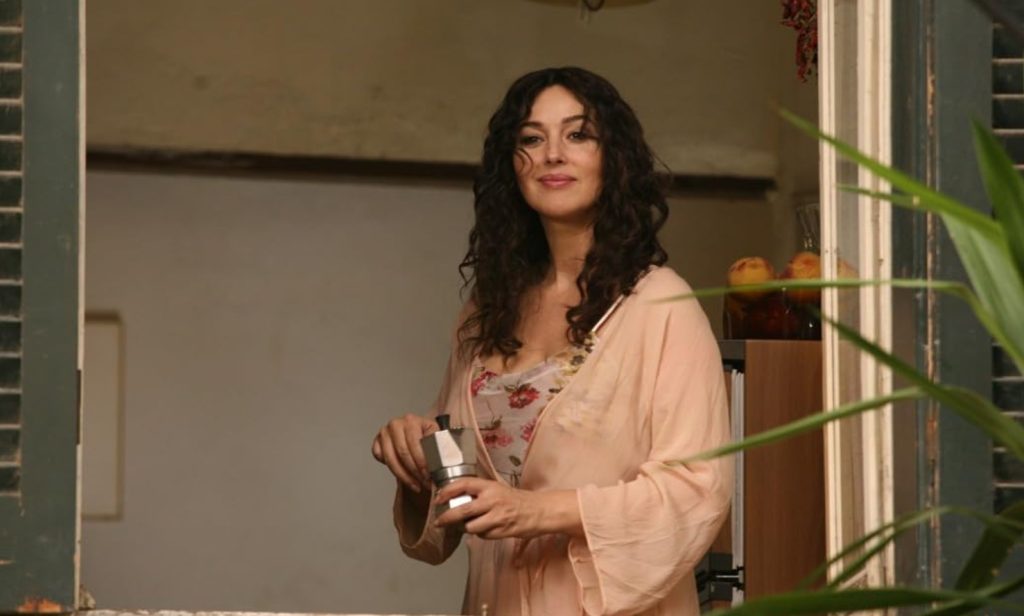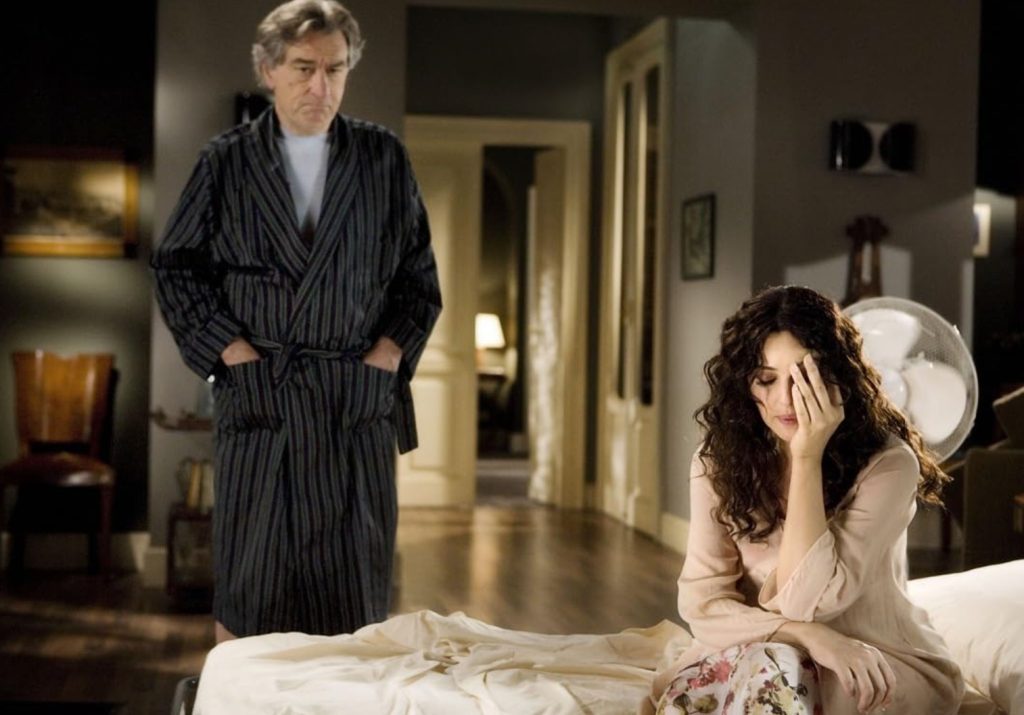
The Ages of Love is a 2011 Italian romantic comedy directed by Giovanni Veronesi. It weaves together three distinct but emotionally interconnected stories, each representing a different phase of romantic experience. As its title suggests, The Ages of Love explores the various stages of love—from youthful passion to mature commitment and even the surprising sparks in old age. With a star-studded cast that includes Robert De Niro, Monica Bellucci, Riccardo Scamarcio, and Michele Placido, the film delivers a poignant, humorous, and charming portrayal of how love evolves over time.
A Triptych of Tales
The Ages of Love is structured around three separate narratives titled Youth, Maturity, and Beyond. Each segment focuses on a different protagonist, and although the stories are not directly related, they all share a thematic coherence centered around the complexities of romantic relationships.
In Youth, we follow the character Roberto (Riccardo Scamarcio), a successful and ambitious lawyer living in Rome with his equally successful fiancée, Sara. Despite the seemingly perfect life, Roberto finds himself entangled in a whirlwind romance with a free-spirited woman named Micol during a work trip to a small Tuscan village. What makes this part of The Ages of Love stand out is its portrayal of the classic dilemma between stability and desire. The youthful thrill of forbidden love is beautifully contrasted with the responsibilities that come with a secure relationship.
The second story, Maturity, shifts the tone as it follows Fabio (Carlo Verdone), a well-respected television news anchor. Fabio’s world turns upside down when he meets Eliana, a quirky and unpredictable woman played by Donatella Finocchiaro. What starts as a simple affair soon spirals into chaos, threatening his career and family. In this middle chapter of The Ages of Love, the narrative highlights the vulnerabilities of middle-aged men and the consequences of reckless decisions. It serves as a sobering reminder that emotional impulsivity doesn’t disappear with age.
Finally, Beyond presents us with Adrian (Robert De Niro), an American professor living in self-imposed isolation in Rome after a heart transplant. His life changes dramatically when he meets Viola (Monica Bellucci), the daughter of his building’s doorman. Despite the age difference, the two form an unlikely connection that blossoms into genuine love. This third part of The Ages of Love delivers a heartwarming message: love has no expiration date. It’s never too late to open your heart, and age should never be a barrier to emotional fulfillment.
Performances That Carry the Film
The acting performances in The Ages of Love are a major highlight. Riccardo Scamarcio perfectly captures the internal struggle of a man torn between two lives. His portrayal of Roberto is both relatable and thought-provoking, as viewers witness the seductive power of impulsive romance and the fear of missing out.
Carlo Verdone brings a blend of humor and melancholy to Fabio, portraying a man who learns, perhaps too late, the value of what he already had. His comedic timing adds a much-needed levity to the narrative without detracting from its emotional weight.
But it is Robert De Niro and Monica Bellucci who steal the show. De Niro, known for his dramatic roles, surprises with a tender, vulnerable portrayal of a man seeking emotional rebirth. Bellucci radiates both sensuality and compassion, making Viola a fully fleshed-out character rather than a mere object of affection. Their chemistry feels authentic and elevates the final chapter of The Ages of Love into something truly touching.
Themes of Emotional Evolution
One of the most compelling aspects of The Ages of Love is its exploration of emotional development over time. The film doesn’t just depict romantic encounters—it delves into the psychology behind them. In Youth, the story emphasizes impulsive choices and the seductive nature of novelty. In Maturity, it highlights the midlife crisis, regrets, and the desire to feel alive again. In Beyond, it celebrates vulnerability, acceptance, and the kind of connection that transcends physical appearances or societal norms.
Each segment of The Ages of Love serves as a mirror for the audience. Regardless of one’s age, viewers can find elements of their own romantic experiences reflected in the characters. This relatability is what makes the film resonate so deeply.

Cinematography and Setting
Visually, The Ages of Love is a feast for the eyes. The film uses the beauty of Italy—from bustling Rome to picturesque Tuscan villages—as a backdrop to its narratives. The cinematography subtly mirrors the emotional tones of each segment. Warm hues and soft lighting in the first story convey the innocence of youth. Cool and modern tones in the second reflect the emotional detachment and confusion of middle age. In the final chapter, golden-hour shots and gentle camera movements underscore the warmth and fragility of later-life romance.
Dialogue and Direction
Giovanni Veronesi’s direction balances humor with poignancy, ensuring that each tale in The Ages of Love stands on its own while contributing to a larger thematic mosaic. The dialogue is sharp, witty, and occasionally philosophical, giving viewers more than just surface-level entertainment.
The script doesn’t shy away from presenting flawed characters. Instead, it invites the audience to empathize with their missteps. This realistic portrayal of love in its many forms is what makes The Ages of Love a standout in the romantic comedy-drama genre.
The Soundtrack That Complements the Mood
The musical score in The Ages of Love complements the narrative seamlessly. It ranges from playful instrumentals to emotionally resonant melodies that enhance key moments without overwhelming them. The soundtrack is subtle yet effective, amplifying the storytelling in a way that feels organic and immersive.
The Universality of Love
What makes The Ages of Love so compelling is its universal appeal. Love, after all, is a human experience that transcends cultures, languages, and generations. By presenting love in its various stages, the film offers a holistic perspective that many other romantic dramas fail to achieve.
It doesn’t romanticize the idea of love as an eternal fairy tale. Instead, The Ages of Love presents it as something dynamic—constantly changing with age, circumstance, and personal growth. It acknowledges the heartbreak, the confusion, the mistakes, and the beauty of love without being overly sentimental or cynical.

Final Verdict
The Ages of Love is not just a film—it’s an emotional journey. It reminds us that love is not a one-size-fits-all emotion. It is complex, messy, unpredictable, and most importantly, evolving. Whether you’re 20 or 70, The Ages of Love has something to say to you.
For those who enjoy character-driven narratives, realistic portrayals of relationships, and a cinematic tour through Italy’s gorgeous landscapes, this film is an absolute must-watch. The performances, especially from De Niro and Bellucci, are heartfelt and memorable. Giovanni Veronesi’s direction ensures that the film never loses its emotional core, despite its shifting tones and multiple storylines.
In conclusion, The Ages of Love stands as a testament to the enduring nature of human connection. It’s a story that encourages introspection about our own romantic pasts, presents, and futures. By the time the credits roll, you may find yourself reflecting on your personal journey through the many ages of love.





